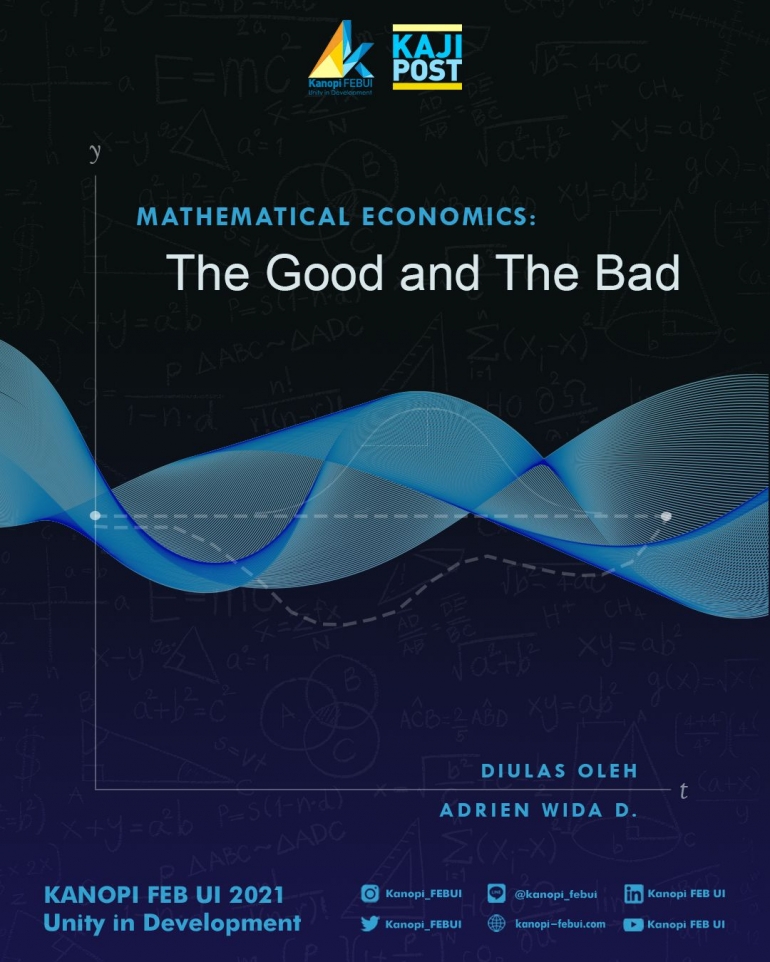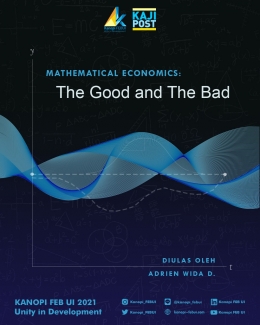Modern commentators have a more nuanced approach. While they acknowledge the value of quantification, they stress out its actual or perceived costs. Kenneth Boulding, for example, stated that quantification results in "reducingism," or the reduction of complicated structures and sets to single numbers, a method that might significantly mislead us when it comes to human well-being. Thus, quantifying in economics entails oversimplification. This idea resounds throughout Nicholas Georgescu- Roegen's literature.
Boulding addressed the following issue in his review of Samuelson's Foundations for the Journal of Political Economy: "What qualifies as a "mathematical" subject?" His response was that economic variables are inherently diverse, which makes them impossible to describe using numerical averages, as the significance of each component is decided only by its relationship to the total. While some regard Boulding as technically ignorant, he is just building on Henri Poincare's theories, one of the best modern mathematicians (Poincare, 1905). In a similar spirit, Georgescu-Roegen highlights the importance of cultural and institutional factors in economics, which mathematical models cannot reflect.
Thus, the challenge stems from economics' inherent complexity---multidimensional, moral, philosophical, metaphysical, institutional, and cultural in nature---which precludes universal quantification. Thus, mathematical modelling, regardless of its sophistication, is incapable of representing the economy's intricacy and diversity. As a result, quantification frequently serves as a false prophet, promising far more than it is capable of delivering. This critique is particularly directed at the industry of econometric model construction and forecasting, whose track record in predicting is often seen as terribly poor.
Is Mathematics truly a Language?
In a 1986 poll of economists, Grubel and Boland discovered that the majority of respondents believed mathematics had a grip over academic economics---a situation they deemed undesirable.
Those who advocate for the use of mathematical tools in economics frequently argue that mathematics is only a language. Additionally, it is advantageous as the language of logic and all sciences. Converting statements to equations simplifies the argument's logic, eliminates ambiguity, and increases conciseness.
Modern variants of this assertion assert that mathematical analysis is preferable to literary analysis since it brings flaws to light. The phrase is attributed to Poisson: "Mathematics has no symbols for perplexed notions." The profession's practice appears to have embraced the content of Poisson's assertion. From its prior role as a conduit for economic understanding, mathematics is now viewed as a necessary but not sufficient condition for articulating economic truth (Grubel and Boland, 1986). However, if this is the case, we must be cognizant of mathematics' inherent biases.
While mathematics may be regarded as a language with some advantages, it also has a number of shortcomings that make it inappropriate for economic research. Boulding remarked in 1948, "I am unaware of any mathematical explanation for the literary term 'I love you.'"
Mathematics can be either pure theory or applied. Its growth history is replete with examples of this conflict between the advancement of theory and the emphasis on application. On the other hand, economics is primarily an applied, policy-oriented study. According to certain writers, mathematical analysis is strongly pro-theory. The use of mathematics in economics enables this to be included into economic study.
The pro-theory bias is seen in the subject matter chosen for analysis. Cournot's declaration that he dealt primarily with issues that could be solved mathematically was at the very least an explicit admission of his chosen approach's limits. We have secretly accepted new habits as a result of the acceptance of mathematics as the most credible language of economic research.
Becoming a More Serious Science







